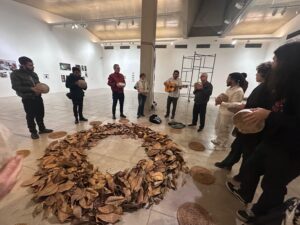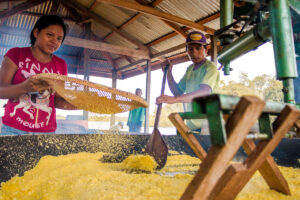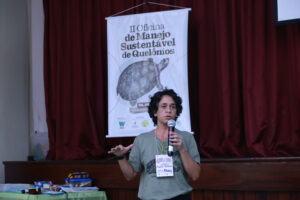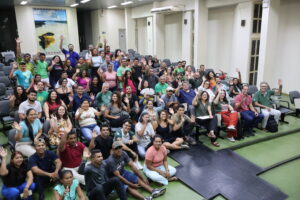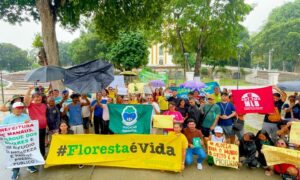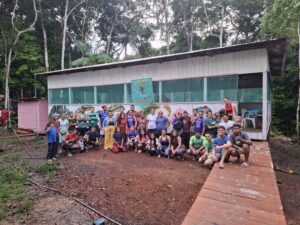By Camila Duarte Ritter
translated by Luiza Campos
The year of 2024 was marked by advancements in research by Instituto Juruá, strengthening socio-environmental conservation and the development of riverside communities. During this period, several investigative initiatives were carried out, connecting ecology, economy and human well-being, mainly in the Médio Juruá region, within the municipalities of Carauari and Itamarati. The results and expectations of these research projects were presented at the Reserves Council, which includes the Uacari Sustainable Development Reserve (RDS) and the Médio Juruá Extractive Reserve (RESEX), during the meeting held from December 10 to 12, 2024.
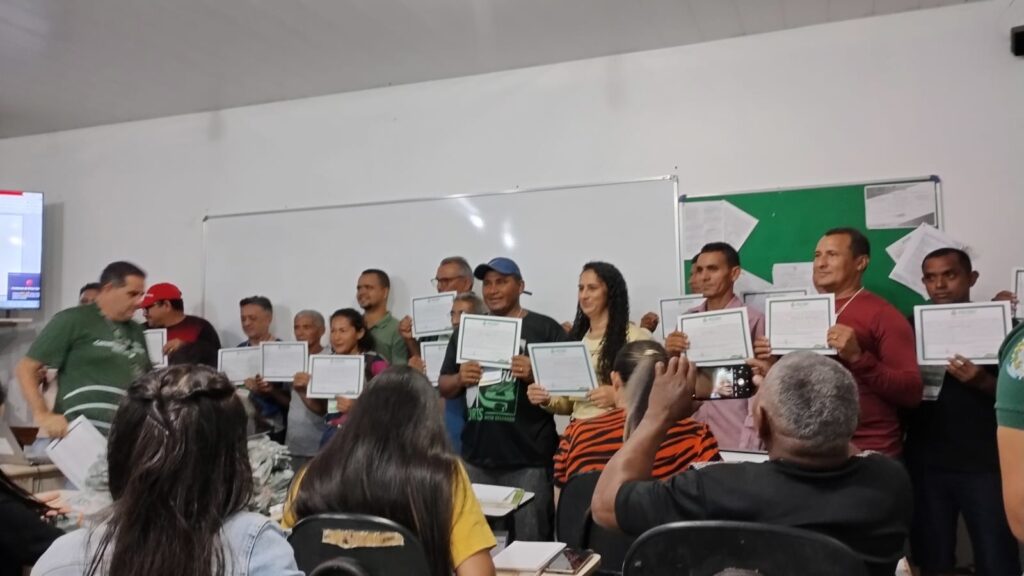
Among the research projects conducted, the studies on ecological, social and economic impacts of oilseed collection stand out, continuing to provide essential knowledge for the sustainable management of natural resource extraction, balancing environmental conservation and economic benefits for the communities. The preliminary study on biocultural practices and subjective well-being in value chains highlighted the importance of traditional productive chains for the well-being of local populations. Another relevant topic addressed was the influence of environmental and socioeconomic factors on the food security of vulnerable riverside populations, offering a deeper understanding of the conditions that affect the diet and health of these groups.
Plastic pollution in the flooded plains in the Amazon rainforest was another focus of the research, emphasizing the urgency of solutions to mitigate the impact of plastic waste on aquatic ecosystems. Furthermore, the research on biomass, biodiversity, and soil quality in secondary forests brought new perspectives on the importance of these areas in the recovery of degraded territories and in the maintenance of biodiversity. Started in 2024, the ‘Frutos da floresta’ (Fruits of the forest) project explores the connection between riverside populations and cultural species of the floodplains of Médio Juruá, with the potential to generate ecological and cultural benefits.
In addition to the research started in 2024 that will continue into 2025, other studies are planned for this year. Research will be conducted on the social and economic impacts of fishing agreements, as well as the concentration of migratory birds and disease dispersion.
During the Reserves Council event, the research needs were presented and discussed, reinforcing the scientific and social relevance of the Instituto Juruá’s initiatives. An important achievement was the approval of the Institute as a voting member on the councils of the Uacari RDS and Médio Juruá RESEX, consolidating its participation in the shared management of these protected areas.

The year of 2025 promises to be equally productive, with the continuation of research and the strengthening of local partnerships, we expect even more robust results. The Instituto Juruá remains steady in its mission to unite scientific knowledge and traditional wisdom to promote environmental conservation and the well-being of riverside communities.
We thank all the partners and collaborators for making each achievement possible. May 2025 bring more advances and positive transformations to the Médio Juruá and the entire Amazon!

